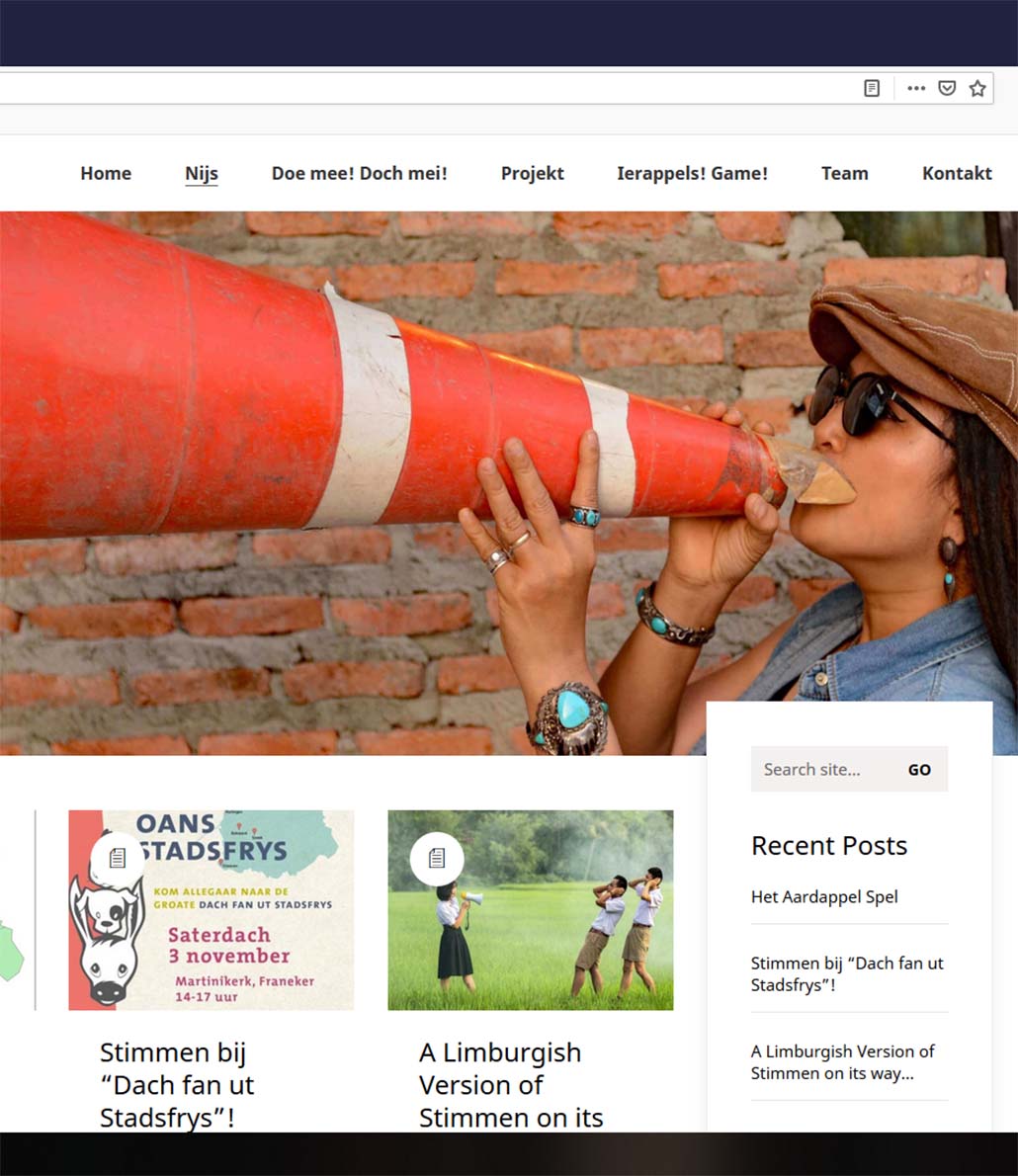How do you say ‘eitje’?
West Frisian, spoken in the Dutch province of Friesland, is considered to be an official language, whereas Gronings, spoken in the province of Groningen, is not. Could this explain why the two languages are developing differently? This is the kind of question that the Norwegian Associate Professor in Sociolinguistics, Nanna Haug Hilton, spends her time trying to answer.
How do you say ‘eitje’? If you come from Groningen or elsewhere in the north of the Netherlands, Nanna Haug Hilton (38) would like to know. Together with her colleagues, she has developed an app to record how people pronounce the word. A previous app that she developed and used in Friesland was able, among other things, to determine where someone came from, based on the person’s pronunciation. The linguists had specified 58 different locations in Friesland, and the app usually got it right. The app, which was developed as a game called ‘Stimmen’, has been played by over 15,000 people. ‘That is more than 2% of the population of Friesland!’, says Hilton proudly. It is certainly an unprecedented number in language research, and therefore a rich source of research data. Encouraged by its success, Hilton and her team decided to take a look at the Low Saxon language, of which Gronings is a dialect. However, this turned out to be more difficult. Not only were people in Groningen less interested in the app, but the app failed almost every time to determine where a person comes from. In fact, the app thought that almost everyone came from the same place. It is no coincidence that this was a location somewhere along the border between the provinces of Utrecht and Gelderland – the closest point to the area in which standard Dutch is spoken. ‘That means that the language of people from Groningen is heavily influenced by standard Dutch.’
Citizen science
Hilton would like to find out the reason for this variation between the languages: why do some people actively hold on to their language, whereas others tend to use more Dutch, sometimes just as actively. She suspects that the official status of a language, such as West Frisian, is one reason, although, as she points out, this status is a purely social one as ‘from a linguistic point of view, there is no difference between a language and a dialect.’ Hilton uses a research method called ‘citizen science’, which is a relatively new concept. She and other top young researchers at the Young Academy of the Royal Netherlands Academy of Arts and Sciences are considering its definition: ‘Is it simply a question of gathering data from the general public? Or should the public also be involved in processing the data, or have the knowledge required to be able to discuss the scientific findings? As far as I am concerned, the most important thing is that the scientific community is open to new perspectives, some of which may be more likely to come from the general public. I suppose you could call it the democratization of science.’ The University of Groningen ‘In Science’ podcast, of which Hilton is one of the presenters, also touches on her passion for citizen science. ‘It is a great way of explaining what scientists are working on to the general public.’
English
There is a pressing need for the democratization of science in her own field too, says Hilton. ‘Since day one, it has been dominated by the world’s major languages, in particular English. As a result, some less popular languages, and even whole language groups, are not addressed at all. This can be a problem, for example if you are working on a definition of the universal characteristics of language.’ About 2,500 languages have currently been documented, explains Hilton, while there are about 7,000 languages in the world. ‘We are missing out on so much knowledge if we fail to study these languages, while the opportunity is there, using citizen science. Luckily, the method is being used more and more, and one of my students, Marcela Huilcán Herrera, recently wrote a thesis on how citizen science can be used to research indigenous languages. What I love about this is that she herself is a member of an indigenous group, the Mapuche in Chile.’ Hilton has noticed that her study of the languages of the north of the Netherlands has had an emancipatory effect. ‘We usually talk of areas affected by earthquakes and population decline, but I have shown that the languages used here are also worthy of study, and that you don’t need to work in the urban west of the Netherlands to carry out interesting research.’
More information
- Podcast
- Stimmen
- Woordwaark
This article has been taken from our alumni magazine Broerstraat 5 , edition 2019 number 4. Text: Franka Hummels

| Last modified: | 12 March 2024 09.50 a.m. |
More news
-
16 December 2024
Jouke de Vries: ‘The University will have to be flexible’
2024 was a festive year for the University of Groningen. Jouke de Vries, the chair of the Executive Board, looks back.
-
10 June 2024
Swarming around a skyscraper
Every two weeks, UG Makers puts the spotlight on a researcher who has created something tangible, ranging from homemade measuring equipment for academic research to small or larger products that can change our daily lives. That is how UG...
